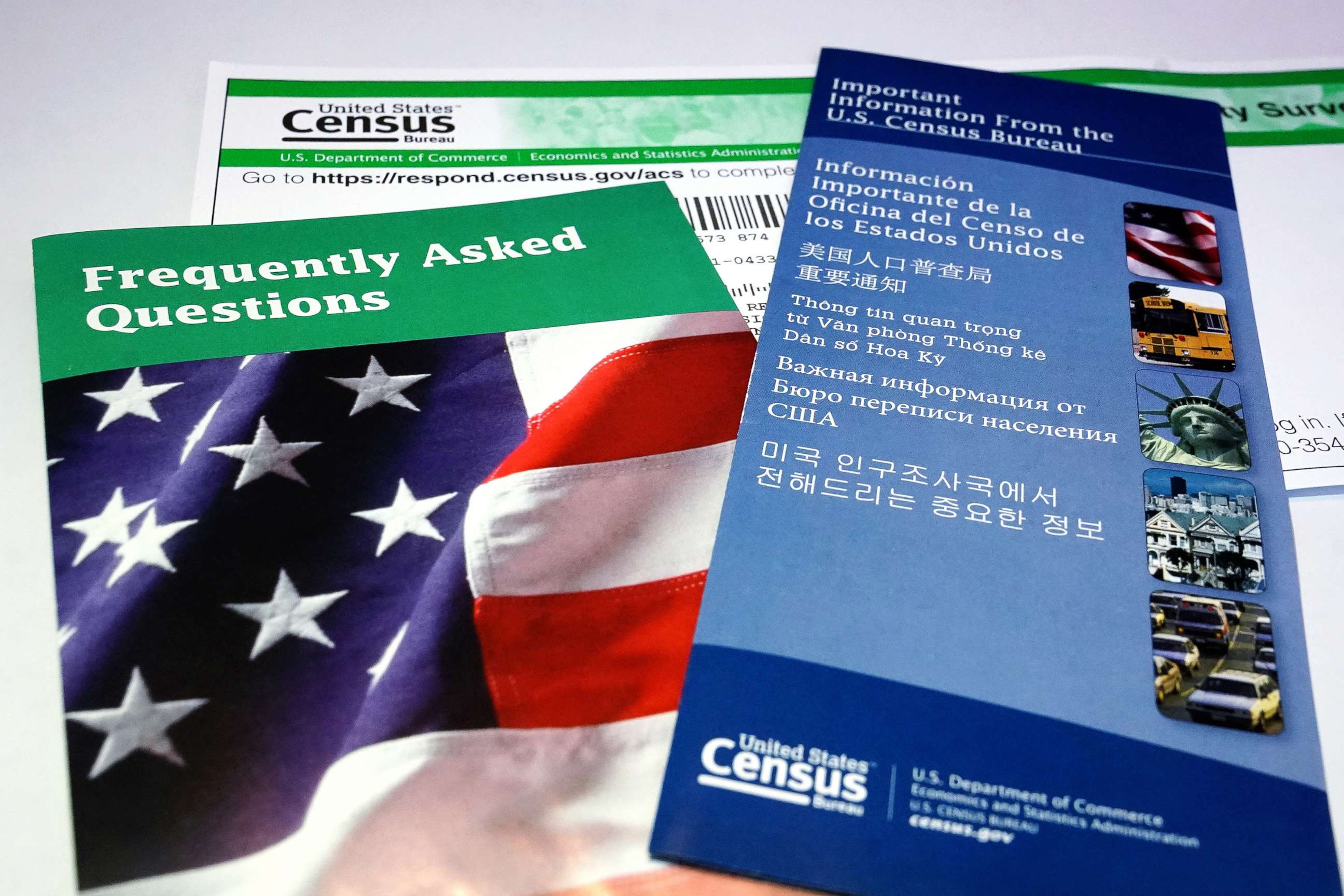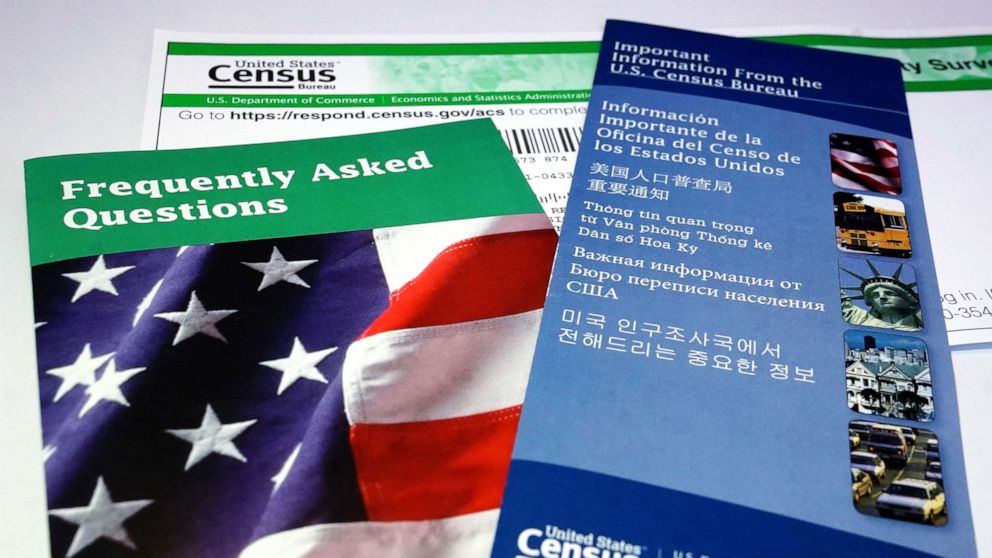Government survey that includes question on citizenship rattles some Americans
Earlier this month, Adrian Roselli, a 45-year-old software consultant living in Buffalo, New York, received a government survey in the mail that didn't just ask his age and address. It also wanted to know whether he was a U.S. citizen, with a warning on the envelope: "Your response is required by law."
That question and other detailed queries included on the survey — race, income, whether a person is part of a same-sex couple and how many apartments are in a person's building — are being asked each year by the U.S. Census Bureau to some 3.5 million households as part of its "American Community Survey."
While the long-form survey has been done annually since 2000, the questionnaire is taking on a new light in the age of President Donald Trump, who has said he wants a more accurate count on the number of undocumented immigrants living in the U.S. and has embraced tougher deportation policies.
Roselli said his immediate reaction was to distrust how the government would handle the data. Ultimately, he decided to fill it out because he said he assumed his information was already "out there somewhere."But he said he sympathized with people of color who are more likely to feel targeted by the government.
"I have some comfort because I'm a white guy," Roselli told ABC News in an interview. "So I occupy a certain place of privilege, which means I don't have to worry on a day-to-day basis, like, probably a majority of the rest of the country has to."
The Supreme Court in June rejected an attempt by the Trump administration to add a citizenship question to the 2020 census, a much more sweeping and comprehensive count of the American population. Unlike the American Community Survey that samples a smaller sample population each year, the census is conducted every 10 years with the goal of counting every person living inside the U.S.
The data from the census is then used to decide how congressional districts are divided and the amount of resources are given to local communities.
Critics of Trump's move to add a citizenship question to the census say it would have suppressed turnout among people of color and immigrants in particular – many of whom live in Democratic-leaning areas.
Anita Banerji, a director at Forefront, a state-wide organization that has been leading 2020 census efforts in Illinois, told ABC that the administration's current stance on immigration could still discourage immigrants from filling out detailed, personal information on government-issued forms.
"Immigrant communities are fearful at this point in time. Understanding that there are a number of ICE raids that are happening across the country, that makes it a very real threat," said Banerji. "And so, when you think about filling out a form that has sensitive household data or information, even if the question is not on there, there is still that sense of dread."
The Census Bureau says it's moving forward with the 2020 census without the citizenship question. But spokesman Leslie Malone said the bureau will continue to ask for citizenship data on the American Community Survey, which is used by "agencies and policymakers to set and evaluate immigration policies and laws."
According to the Census Bureau, "all answers are kept confidential by law, and are not shared with other government agencies."
Still, the American Community Survey remains unnerving for some Americans, particularly with the warning that it's against the law to ignore it.

Candance Wilson, a 61-year-old retired school teacher, said she was randomly selected to take the form three years ago. Wilson said she didn't recognize the difference between the census and the American Community Survey.
"I think a lot of people don't even, number one, really know what it is. And if they have gotten it, they're very leery of it," said Wilson, a Texas Republican who taught Spanish for 13 years.
Wilson said in the wake of the Trump administration's tough stance on immigration, she is wary of how the government would use the information.
"The citizenship question, on the face of it … our administration may say it's just an innocent thing," Wilson said. "Yeah right."
Ultimately, she decided to fill out the form because she felt that "it was the right thing to do."
Since the Supreme Court blocked the Trump administration from adding the citizenship question to the census, the administration issued an executive order requesting federal agencies provide the Census Bureau with citizenship data. The Trump administration insists this information will be confidential and not used to enforce immigration policies.
Arturo Vargas, head of National Association of Latino Elected and Appointed Officials, a nonprofit organization that encourages Latinos to vote and participate in U.S. democracy, will be conducting focus groups and surveys around the country this fall to understand how Trump's policies have affected Latinos' attitudes towards surveys administered by the Census Bureau.
The Census Bureau says no one has ever been prosecuted for not responding to the survey. And when asked by ABC News if people could opt to not answer the citizenship question and fill out the rest of the questionnaire, the Census Bureau would only say it "encourages respondents to answer all questions."
The Census Bureau is expected to begin releasing data from last year's American Community Survey later this month.




